Buying a House in a Flood Zone

Uncover the Risks of Buying a House in a Flood Zone
Imagine finding your dream home, only to discover it’s located in a flood zone. Navigating the complexities of buying a house in a flood zone can be daunting, but understanding the risks and necessary precautions can make all the difference. This comprehensive guide will help you uncover the risks, evaluate properties, and make informed decisions about purchasing and protecting your investment.
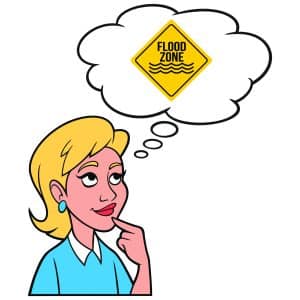 Short Summary
Short Summary
- Understand FEMA’s flood zone classifications and consult with a REALTOR® to evaluate property risk when buying.
- Flood insurance is essential, varying in cost and availability depending on the NFIP, National Flood Insurance Program, or private providers.
- Consider financial risks such as increased premiums & difficulty reselling before making a decision. Prepare your home for flooding & work with an experienced REALTOR®.
Understanding Flood Zones: Federal Emergency Management Agency (FEMA) Classifications
The Federal Emergency Management Agency (FEMA) classifies flood zones to differentiate between higher-risk and moderate to low-risk special flood hazard areas. Knowing a property’s flood zone classification is essential for homeowners, as it determines the necessity of flood insurance and potential costs. High-risk flood zones, also known as special flood hazard areas (SFHAs), have a 1% annual chance of flooding, which equates to a 25% chance of experiencing a flood within a 30-year mortgage period. Notably, just one inch of floodwater in a residence can result in thousands of dollars worth of damage.
Flood zones are commonly found near waterways and other bodies of water, including lakes. To determine if your property is in a flood zone, consult FEMA’s map using the property’s address.
Remember, buying a house in a high-risk flood zone might not be advisable due to the potential for flooding and resultant damage. It’s crucial to understand the implications of your property’s flood zone classification before finalizing a home purchase. FEMA’s classifications provide valuable information about the risk of flooding and help homeowners make informed decisions about flood insurance coverage and potential costs.
Evaluating a Property’s Flood Risk
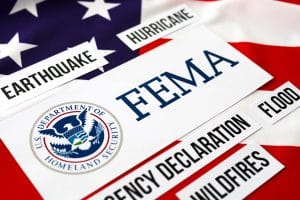 Various factors can contribute to a property’s flood risk, such as thawing snow, broken pipes, hurricanes, construction issues, blocked storm drains, or flash floods. To determine a property’s flood risk, consult FEMA’s Flood Map Service or a knowledgeable real estate agent. A property’s flood zone code indicates its risk level: codes beginning with A or V signify high-risk flood zones, while codes starting with B, C, or X indicate minimal to moderate risk. Including the home’s flood zone designation in your house-hunting checklist is essential.
Various factors can contribute to a property’s flood risk, such as thawing snow, broken pipes, hurricanes, construction issues, blocked storm drains, or flash floods. To determine a property’s flood risk, consult FEMA’s Flood Map Service or a knowledgeable real estate agent. A property’s flood zone code indicates its risk level: codes beginning with A or V signify high-risk flood zones, while codes starting with B, C, or X indicate minimal to moderate risk. Including the home’s flood zone designation in your house-hunting checklist is essential.
Ultimately, understanding a property’s flood risk is crucial when considering a home purchase. Researching FEMA’s flood zone classifications and consulting with a REALTOR® will help you make informed decisions and protect your investment from potential flood damage.
The Necessity of Flood Insurance
 Flood insurance is essential for protecting your investment, as it covers damages not included in traditional homeowners insurance. To safeguard your property, it’s important to purchase flood insurance from either the National Flood Insurance Program (NFIP) or private insurance providers that offer flood insurance coverage.
Flood insurance is essential for protecting your investment, as it covers damages not included in traditional homeowners insurance. To safeguard your property, it’s important to purchase flood insurance from either the National Flood Insurance Program (NFIP) or private insurance providers that offer flood insurance coverage.
Checking the FEMA Floodplain and Floodway Map is a recommended method for determining if you require flood insurance. Keep in mind that flood insurance could potentially increase your monthly mortgage payment.
High-Risk Flood Areas and Insurance Requirements
FEMA designates high-risk flood areas as those with a 1% annual chance of flooding. In these areas, the National Flood Insurance Program (NFIP) offers coverage for damage to a home and for items inside the home, such as furniture, electronics, and personal items. Private flood insurance is an option for those who do not reside in NFIP-participating communities or require more coverage than what is offered by the NFIP. Private flood insurance can provide comprehensive protection for your home and your possessions. You can customize it to cover alternative living expenses as well.
Flood insurance in a high-risk zone may amount to several thousand dollars annually. Therefore, it’s crucial to consider the insurance requirements and options for high-risk flood areas while making an informed decision about your home purchase. Weighing the pros and cons of NFIP insurance and private flood insurance will help you determine the best coverage for your specific situation.
Financial Implications of Buying a House in a Flood Zone
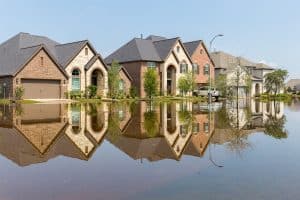 Purchasing a house in a flood zone carries financial implications, such as increased flood insurance rates, potential fluctuations in real estate value, and difficulty selling the property. The cost of flood insurance can vary significantly based on the region and the specific policy details. Potential flood damage, increased flood insurance premiums, and difficulty selling the home are risks to be aware of when considering a home in a flood zone.
Purchasing a house in a flood zone carries financial implications, such as increased flood insurance rates, potential fluctuations in real estate value, and difficulty selling the property. The cost of flood insurance can vary significantly based on the region and the specific policy details. Potential flood damage, increased flood insurance premiums, and difficulty selling the home are risks to be aware of when considering a home in a flood zone.
Obtaining a flood insurance quote before finalizing a home purchase is essential, as the cost of flood insurance can vary significantly based on the particular home and location. Moreover, it’s crucial to factor in the potential challenges and costs of living in a flood zone while making an informed decision about your home purchase.
Understanding the financial implications and potential risks will help you make the best decision for your future.
Preparing Your Home for Potential Flooding
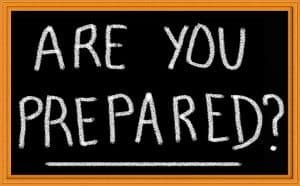 If you do decide to purchase a home in a flood zone, proactive measures can help minimize damage in the event of a flood. Elevating the HVAC, water heater, and electrical panels, clearing gutters and storm drains, installing check valves, and sealing basement walls with waterproofing materials or water-resistant drywall are all steps you can take to reduce potential damage.
If you do decide to purchase a home in a flood zone, proactive measures can help minimize damage in the event of a flood. Elevating the HVAC, water heater, and electrical panels, clearing gutters and storm drains, installing check valves, and sealing basement walls with waterproofing materials or water-resistant drywall are all steps you can take to reduce potential damage.
Taking the necessary precautions to prepare your home for potential flooding can help protect your investment and provide peace of mind for you and your family. Implementing these strategies will help minimize damage and ensure that your home is as safe and secure as possible.
Working with an Experienced REALTOR®
 An experienced REALTOR® provides invaluable guidance when purchasing a home in a flood zone, ensuring you make a well-informed decision regarding the property’s potential risks. A knowledgeable real estate agent can provide information regarding the flood hazards of the property and help you understand the area’s history, including prior issues with flooding. They can assist you in deciding on a suitable offer for a house. Factors such as flood risk and insurance are costs you must take into consideration while making the offer.
An experienced REALTOR® provides invaluable guidance when purchasing a home in a flood zone, ensuring you make a well-informed decision regarding the property’s potential risks. A knowledgeable real estate agent can provide information regarding the flood hazards of the property and help you understand the area’s history, including prior issues with flooding. They can assist you in deciding on a suitable offer for a house. Factors such as flood risk and insurance are costs you must take into consideration while making the offer.
Reselling Challenges and Strategies
Reselling a house in a flood zone can present unique challenges, such as finding buyers willing to accept the risk of potential flooding, decreased resale value, and an extended period of time to sell. Buyers may be hesitant to purchase a home in a high-risk flood zone due to the increased risk of flooding and the additional costs of insurance.
To address the difficulties associated with reselling a house in a flood zone, researching the local market, collaborating with a knowledgeable real estate agent, and providing incentives to prospective buyers are beneficial. By employing these strategies, you can overcome the challenges of reselling a house in a flood zone and ensure a successful sale.
Weighing the Pros and Cons of Living in a Flood Zone
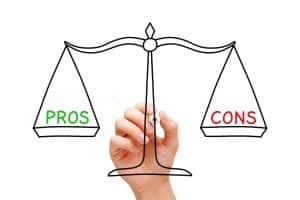 Living in a flood zone has its advantages and disadvantages. Benefits may include access to waterfront property and the potential for rental income. However, drawbacks such as higher insurance costs, the potential for property damage, and difficulty reselling are costs you must consider.
Living in a flood zone has its advantages and disadvantages. Benefits may include access to waterfront property and the potential for rental income. However, drawbacks such as higher insurance costs, the potential for property damage, and difficulty reselling are costs you must consider.
When contemplating a home purchase in a flood zone, it’s crucial to weigh the pros and cons carefully. Evaluating the potential flood risk, the need for flood insurance, the financial ramifications, the steps to take to prepare the home for flooding, the importance of working with an experienced REALTOR®, and the challenges and strategies associated with reselling will help you make an informed decision.
Summary
In conclusion, understanding the risks and necessary precautions associated with buying a house in a flood zone is crucial for making an informed decision. By evaluating properties, securing flood insurance, preparing your home for potential flooding, and working with an experienced real estate agent, you can navigate the complexities of purchasing and protecting your investment. Remember, knowledge is power, and being well-informed about the pros and cons of living in a flood zone will help you make the best choice for your future.
Frequently Asked Questions
Why do people live in flood zones?
People tend to live in flood zones for various reasons, such as the availability of amenities like living close to the ocean, and beautiful landscapes near rivers and lakes, as well as economic pressures that force people to move there even though it is prone to floods.
Ultimately, it boils down to a combination of personal preferences, economic necessity, and geographic convenience.
What is the best flood zone to live in?
For those wanting the highest level of flood protection for their property, the best choice is Flood Zone X. This designation offers a high degree of safety from flooding as it is outside the 500-year floodplain and is further protected by a flood control system such as a levee or dam from the 100-year floodplain.
How do you floodproof your home?
To floodproof your home, consider elevating utilities, replacing carpeting with tiles, installing foundation vents or sump pumps, applying sealants and coatings, raising electrical outlets and switches, keeping gutters and downspouts clean, and grading the lawn away from your house.
Take precautionary steps to protect your home from flooding and minimize damage.
What are the benefits of working with an experienced REALTOR® when buying a house in a flood zone?
Working with an experienced REALTOR® can provide a clear understanding of the local insurance and building codes, including any updated regulations in place to protect against flooding.
When purchasing a house in a flood zone, working with an experienced REALTOR® has many benefits, such as providing insight into the area’s history and an understanding of local insurance and building codes, as well as helping secure your home and investment from potential damage.




Leave A Comment